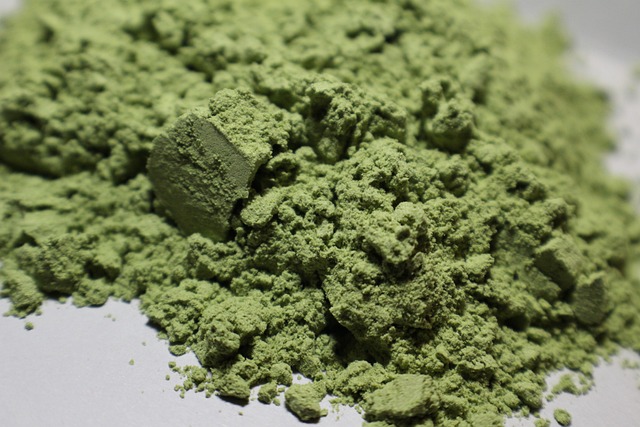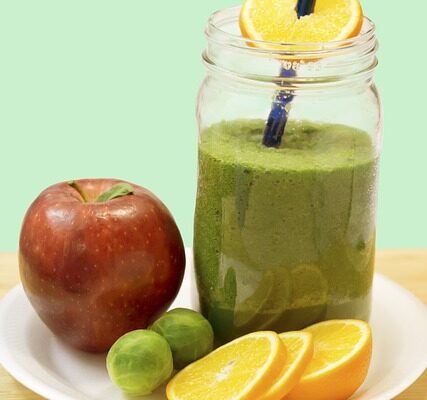Many people are turning to greens powders to increase their nutrient intake without having to cook or prepare any greens. But are they as “healthy” as people believe?
These powder products could help you get more fruits and vegetables with little effort. However, they do not substitute whole foods. Whole fruits and vegetables provide substantially more fiber which is more beneficial to digestive and cardiovascular health than most greens powders.
There are dozens of various greens powders on the market today, each with its own set of components. Most powders contain herbs, adaptogens, prebiotics, probiotics, digestive enzymes, and other substances, many of which may interfere with drugs or worsen chronic illness symptoms.
As a result, if you’re considering using these type of products, carefully read the ingredient label and consult with a healthcare expert to confirm it’s safe for you.
Are Greens Powders Useful?
Some modest research has suggested that greens powders may have health benefits such as decreasing blood pressure, whereas studies investigating whether greens powders can enhance energy have found no benefit.

Fruit and vegetable powders have been demonstrated to raise blood levels of vitamins and antioxidants such as carotenoids. Carotenoids have been linked to a lower chance of developing some malignancies, age-related macular degeneration, and cardiovascular disease.
More research is needed, however, to fully comprehend greens powders and whether or not they provide actual benefits.
Please bear in mind that a large portion of the advantages of fruits and vegetables come from providing nutrients in conjunction with dietary fiber, whereas greens powders typically provide little to no fiber.
Greens powders cannot substitute a broad, well-balanced diet, although they may be beneficial to some people who aren’t getting enough nutrients from food.
The following folks may benefit from greens powders:
People who do not consume a lot of fruits and vegetables:
Greens powders may be a good option for folks who dislike vegetables. Although greens powders aren’t a perfect substitute for eating green veggies (and other nutrient-rich products), they can deliver vital nutrients to support health that you would be lacking otherwise.
People who travel frequently include:
When you’re constantly on the go, it can be tough to eat enough produce, and greens powders can be an easy, portable method to meet some of your vitamin and mineral needs.
Athletes include:
Prolonged high-intensity exercise might boost vitamin and mineral requirements. Some athletes struggle to achieve their basic dietary requirements, let alone an extra quantity, for optimal recovery. If you’re a competitive athlete and want to use a greens powder, be sure it’s third-party tested and free of any forbidden components for your sport.
People who have poor absorption:
Certain disorders, such as inflammatory bowel disease, may cause poor nutrition absorption. In these circumstances, a greens powder may assist you in meeting your nutrient requirements. However, make certain that there are no additives that can aggravate your digestive problem.
Patients receiving surgery:
According to new research, fruit and vegetable powders may help in recuperation after surgery. This may be especially useful for patients who are undergoing oral surgery or other procedures that limit their ability to ingest entire fruits and vegetables.
Who Shouldn’t Use Greens Powders?
Because the contents in greens powders vary greatly, it’s critical to thoroughly study the label to ensure it’s safe for you. Most greens powders contain ingredients other than leafy green vegetables. Many contain grasses and alfalfa sprouts, which may interfere with drugs or exacerbate certain health conditions.
While these products are sometimes labeled as “food,” they are a supplement, and even food-based elements might be troublesome for certain people at the levels provided.
The following folks should use extreme caution.
Prescription medicine users include:
Most of Greens Powders contain a lot of vitamin K, which might interfere with a lot of prescription drugs. Blood thinners, cholesterol-lowering drugs, antacids, and seizure medications are all possible interactions. If you are using any prescription or over-the-counter medications, consult your doctor before using a greens powder.
People who are pregnant or breastfeeding:
Many components, including adaptogenic herbs, prebiotics and probiotics, and digestive enzymes, have not been thoroughly researched in pregnant or breastfeeding women, so we don’t know if they are safe.
If you’re already taking a prenatal vitamin, adding a greens powder could result in hazardous amounts of some nutrients, so check the labels of any supplements.

End-stage renal disease patients:
A serving of potassium can range from 140 to 350 mg, depending on the product. Individuals with end-stage kidney disease may be unable to tolerate high potassium levels since the kidneys have a difficult time eliminating excess potassium from our blood. Hyperkalemia, or a buildup of potassium, can produce dizziness, nausea, numbness, and a sluggish heart rate.
People who are allergic to wheat might be allergic to Greens Powders
Most greens powders contain wheatgrass, which is troublesome for anyone who is allergic to wheat. Wheatgrass is normally harvested before the seed develops on the wheat, so it is gluten-free.
Anyone with a celiac condition/disease or who avoids gluten should, however, choose a gluten-free product. Every greens powder comprises a different set of components and may contain allergies, so read the ingredient list carefully if you have a food allergy.
Athletes, both professional and collegiate:
While greens powders can be an effective way to complement an athlete’s diet, some supplements may contain substances that are prohibited in sports.
Because not all products are third-party tested, it is especially crucial for athletes who may be drug tested to avoid taking greens powders that have not been thoroughly examined. Choose one that is N.S.F. approved for sport, which is one of the most stringent third-party testing certifications.
People who have digestive issues:
Many greens powders contain additives that can aggravate digestive issues. Greens powders may be problematic for those with irritable bowel syndrome (I.B.S.) who have difficulty digesting specific carbohydrates known as FODMAPs. Greens powders may contain FODMAPs such as inulin, as well as FODMAP-rich foods like fruits and vegetables.

Some digestive issues can also be exacerbated by probiotics and other prebiotics. If you are going to consume a greens powder, “check all ingredients to ensure there aren’t any extra probiotics or prebiotics that could worsen your symptoms.
Other vitamin and mineral supplement users: If you take a multivitamin or other vitamin or mineral supplement, ensure you aren’t getting too much of any one nutrient. When consumed in excess, most nutrients in supplement form (even greens powders) can have negative—or even dangerous—side effects.
Click Here to Read Part 2 on Greens Powders
Click Here to Read Part 3 on Greens Powders
